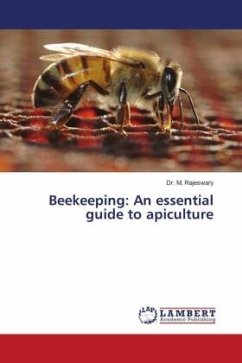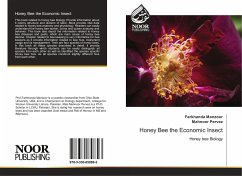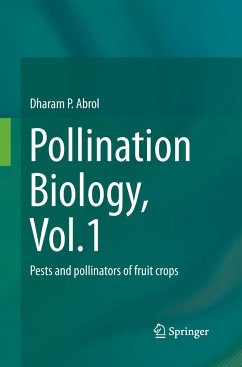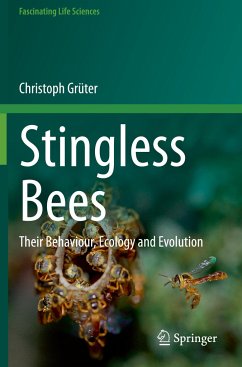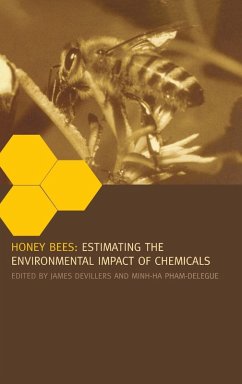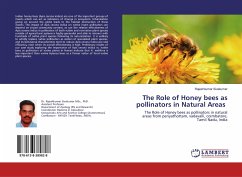
The Role of Honey bees as pollinators in Natural Areas
The Role of Honey bees as pollinators in natural areas from periyathottam, vadavalli, coimbatore, Tamil Nadu, India
Versandkostenfrei!
Versandfertig in 6-10 Tagen
27,99 €
inkl. MwSt.

PAYBACK Punkte
14 °P sammeln!
Indian honey bees (Apis cerana indica) are one of the important groups of insects which can act as indicators of change in ecosystem. Urbanization going on around the globe leads to the habitat destruction of these insects. The impact of Apis cerana indica on native insect pollinators can depend on broad community context, as can the relative effectiveness of Apis cerana indica in pollination of both native and nonnative plant species outside of agricultural systems is highly generalist and able to interact with hundreds of native plant species following its naturalization. It is unlikely to w...
Indian honey bees (Apis cerana indica) are one of the important groups of insects which can act as indicators of change in ecosystem. Urbanization going on around the globe leads to the habitat destruction of these insects. The impact of Apis cerana indica on native insect pollinators can depend on broad community context, as can the relative effectiveness of Apis cerana indica in pollination of both native and nonnative plant species outside of agricultural systems is highly generalist and able to interact with hundreds of native plant species following its naturalization. It is unlikely to wholly replace native pollinators as visitors of specialized plant species, and its behavioral characteristics tend to reduce Apis cerana indica per-visit efficiency, even when its overall effectiveness is high. Preliminary results of our case study exploring the importance of Apis cerana indica vs. native bees as pollinators of native plants in Hawaii indicate that A. mellifera is less important than native Hylaeus bees as a flower visitor of focal native plant species.



